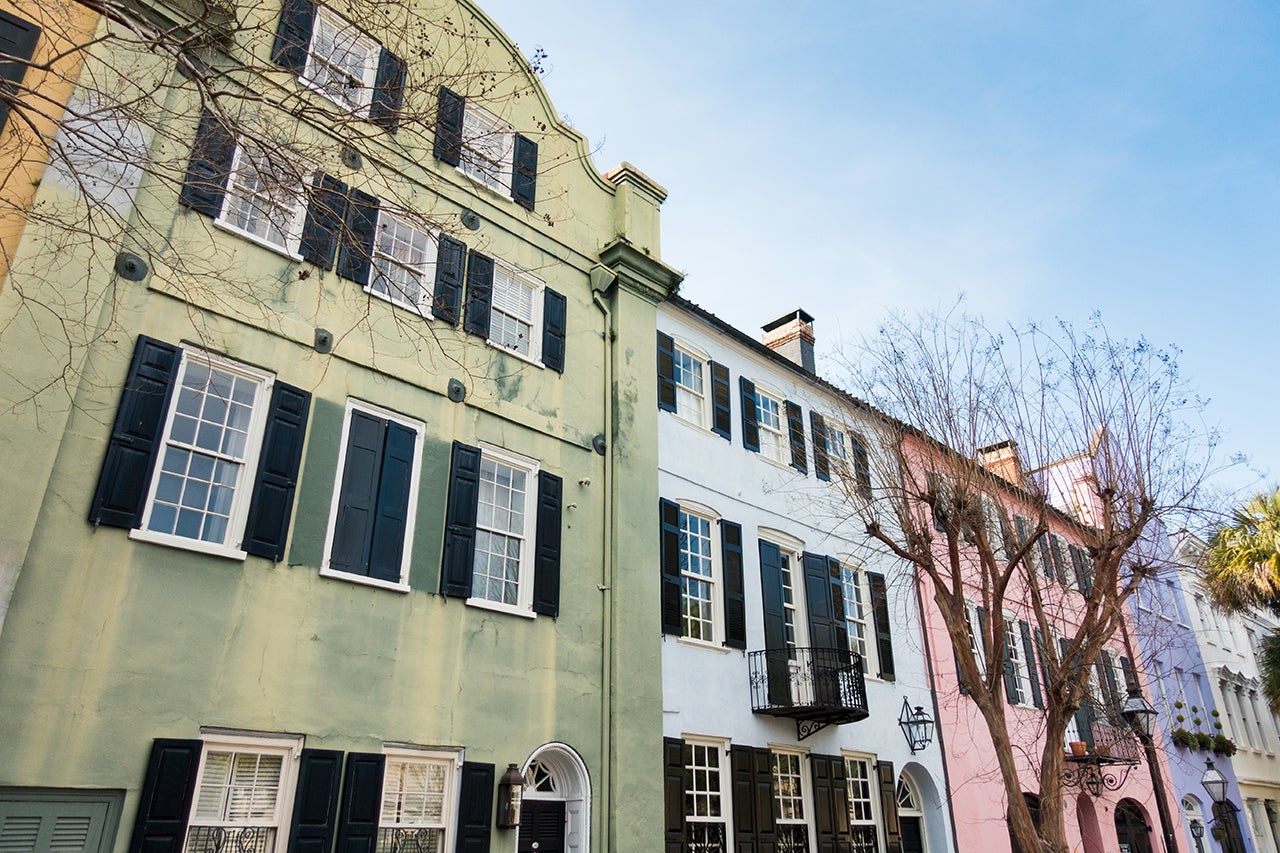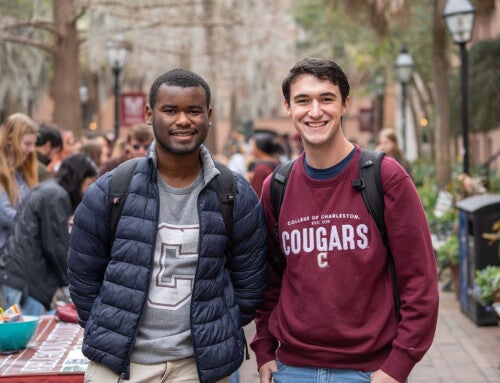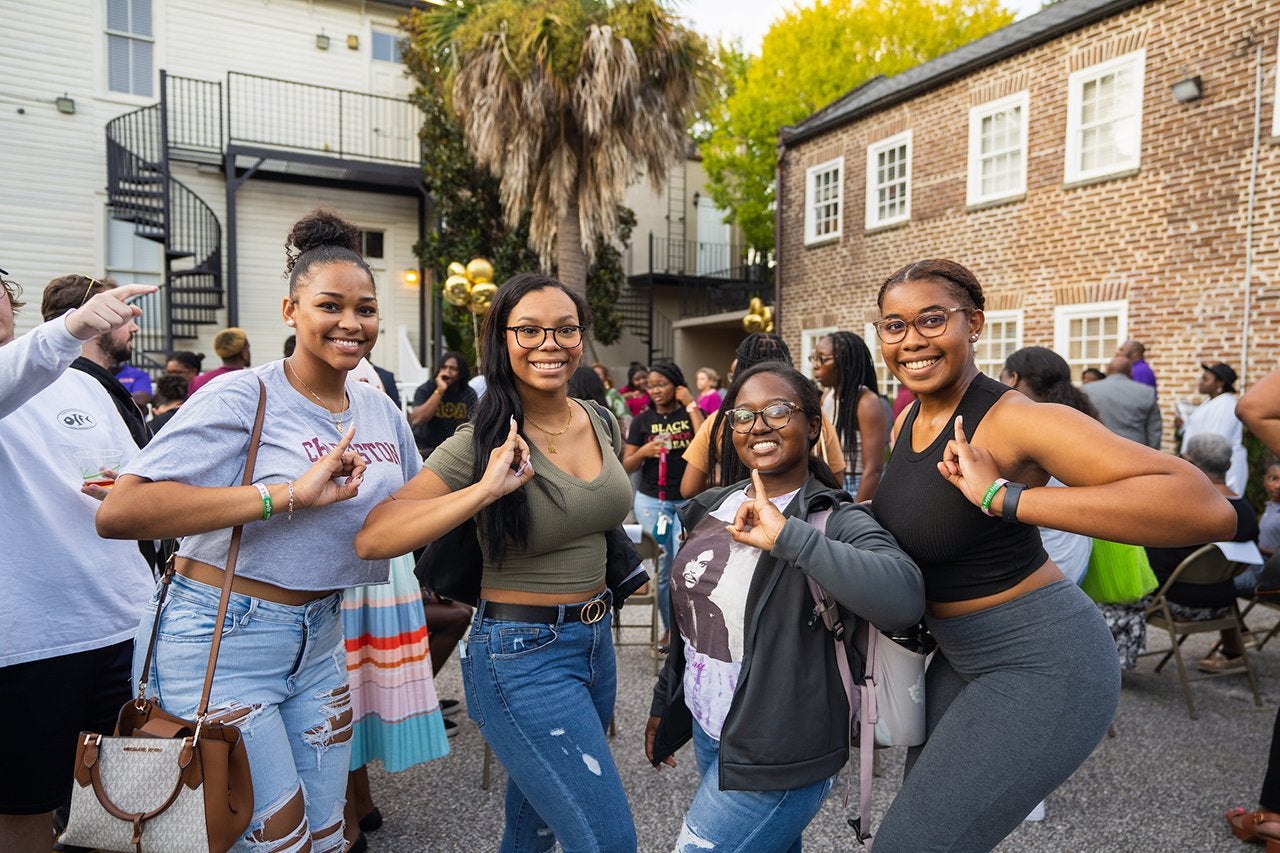Destination marketing. Yes, that’s a thing. And for those in the hospitality and travel industry, it’s a very big thing – or at least it was until the COVID-19 pandemic disrupted life all around the globe.
Up until the advent of this disease, a new trend had been shaping up in the realm of destination marketing. It’s one that will likely return even stronger once the world resumes normalcy. That trend is the use of personal narratives to promote the variety of offerings in the travel and hospitality industry. And that’s exactly what 10 students are studying in a new College of Charleston course called Strategic Narratives in Placemaking.
Hospitality and tourism management professor Brumby McLeod has established a reputation for developing new courses, especially ones that enable students to learn through firsthand experiences. And that’s what he’s doing with this course.
“Storytelling is at the heart of sharing our experiences,” explains McLeod, “particularly travel experiences. The students in this class are getting a chance to develop and practice that skill with guidance from international journalists, travel writers, photographers, videographers and leading destination marketing organizations including Charleston’s own Explore Charleston, an initiative of the Charleston Area Convention and Visitors Bureau.”
McLeod has essentially handed the reins as lead instructor to Andrew Nelson, a veteran travel writer who taught communications, writing and travel branding at Loyola University New Orleans.
“Andrew was formerly the editorial director for special projects with National Geographic Traveler,” McLeod explains. “He has a wealth of knowledge, experience and contacts in the travel and hospitality sector as well as five years of classroom experience at Loyola.”
And Nelson concurs regarding the importance of stories.
“Everything is about narrative,” he says. “And social media now plays such an important role in this industry. So, we’re helping these students understand what content creators are doing in the travel and hospitality industry, particularly with Instagram as their canvas. The places and properties that are thriving the most – or were prior to the pandemic – have individuals creating meaningful and engaging content, and that’s what we’re challenging the students to learn to do in this course.”

Student Tyler Roach focuses on creating a unique sense of place for Charleston on the Instagram account @chslocal as part of the Strategic Narratives in Placemaking course.
For the first month and a half of the spring 2020 semester, students in this class posted several times a week on Instagram accounts established expressly for the course. Their objective was to support the work of Explore Charleston, the promotional arm of Charleston’s Convention and Visitors Bureau. But with the rise of COVID-19 and the fact that so few people are now traveling and hotels and other travel businesses are essentially shuttered, Nelson says the class has pivoted its focus.
“It’s really important for anyone involved in destination marketing to have a crisis plan,” he explains. “So, as tragic as the pandemic is, it’s also an opportunity for real-world learning in this class. We discussed that in a recent session (virtually, of course). We resolved that each student will develop a campaign focused on reminding travelers that Charleston is still here and when COVID-19 is over, they should come back and enjoy all of the things they love about this city.”
Senior philosophy major Tyler Roach says his interest in photography and travel drew him to enroll in this class.
“I’d never heard of strategic narratives before,” he says, “but after I emailed professor McLeod and we chatted, it seemed like such a good opportunity. I didn’t know that the class would end up being so focused on social media. That has forced me out of my comfort zone because I’m really more of an analog person. Still, I think my grounding in philosophy has helped me find the essence of the topics we’re asked to create content about.”
Roach has been actively posting under the handle @chslocal. He calls it “a local’s guide to life in Charleston, S.C.” Initially, he gained over 200 followers on Instagram and covered such topics as the quirky beauty of The Neck area, dining at Jack Rabbit Filly and the Notsohostel, Charleston’s bargain-basement hotel.
“Actually, a lot goes into my posts,” Roach explains. “I end up brainstorming for a few days before writing.”

Rachel Singletary has pivoted the narratives on her Instagram account to show how Charleston will overcome the COVID-19 pandemic and continue to thrive as a unique coastal city with a rich history.
Senior hospitality and tourism management major Rachel Singletary feels like she’s operating in the professional ranks because of the work she’s doing for the course.
“I feel like I’m an active working member of the marketing community in Charleston doing the stuff we’re doing for class,” she says. “We get to try out so much material in this course and then you’re critiqued by people who really know this industry, and that’s huge.”
Singletary says she understands that the focus of the course had to shift due to the pandemic.
“Life happens and you have to pivot,” she says. “Now, the essential question for us is, how do you sell a destination that people can’t visit? Charleston faces this issue almost annually with hurricanes, so we’re learning that it’s important to keep this city top of mind, not just for visitors but also for all of the Convention and Visitor Bureau’s members. Our job in this class now is to create campaigns that align with the Explore Charleston brand and keep engagement up when visitation is devastatingly low. Luckily, the city already has a strong business community, with a lot of innovation and supporters, and there is no shortage of people who are continuing to make the best of this situation.”
And Singletary says she’s grateful for the experience.
“Content creators and social media managers are becoming hot commodities. And to work in destination marketing, you really need these skills,” she says. “I mean I can take good photos and I can construct a story that’s compelling, but if I’m not able to generate an audience, then I’m not being an effective communicator. We’re learning a lot about how that’s done, and it’s great that Explore Charleston will actually be implementing several of the strategies students in this class are developing.”
As a travel writing professional, Nelson concurs.
“Creating content is a skill that almost anyone in almost every profession can use,” he says. “And it’s natural, because people love to express themselves, but not everyone can do it effectively. That’s the key to this class.”




